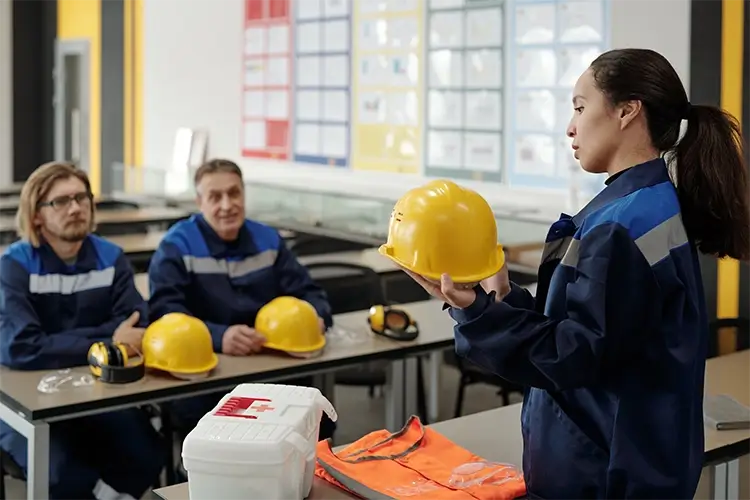When we begin vocational training, it’s easy to focus only on the skills at hand—mastering new tools, passing exams, and completing assignments. But thinking about where we are headed after training is just as important. Setting career goals early helps us stay motivated, use our time wisely, and make sure every skill we build brings us closer to where we want to be. Without a clear plan, it’s easy to feel overwhelmed or lose focus along the way.
Setting goals gives our training a purpose beyond graduation. Instead of simply checking boxes, we are working toward a bigger personal achievement: launching a rewarding career. Whether you’re training for a role in healthcare, business technology, skilled trades, or education support, having career goals in mind from day one helps you connect classroom lessons to real-world results.
How to Create Achievable Short-Term and Long-Term Career Plans
When we talk about career goals, it’s important to break them down into short-term and long-term plans. Both are important; together, they give you a clear roadmap to follow.
Short-term career goals might include:
- Completing your training program on schedule
- Passing required certification exams
- Building a professional resume
- Networking with classmates, instructors, and local employers
- Gaining real-world experience through internships or entry-level jobs
Long-term career goals might look like:
- Becoming a lead technician, supervisor, or department head
- Continuing your education or adding new certifications
- Starting your own business or consultancy
- Specializing in a niche area within your field
- Training others once you gain enough industry experience
Setting both types of goals keeps you grounded while allowing you to dream bigger. Short-term goals build momentum, while long-term goals keep your eyes on the future.
Staying Flexible While Keeping Your End Goal in Mind
Career paths are rarely straight lines. Even with clear goals, we should be prepared for unexpected changes. Industries evolve, new opportunities arise, and personal interests shift over time. Staying flexible while keeping your larger career vision in mind allows you to adjust your path without feeling like you’re starting over.
Here are a few ways to stay flexible:
- Be open to learning new skills that complement your original goal
- Consider related career fields where your training applies
- Stay informed about changes in your industry
- Seek advice from instructors, mentors, and career advisors
- Stay positive and focus on building transferable skills
Adjusting your plans when needed doesn’t mean giving up—it means being smart about how to move forward.
Using Training Milestones to Measure Your Progress
Tracking your progress through training is just as important as setting goals. Milestones give you a sense of accomplishment and show you how far you’ve come. They also help you spot areas where you may need extra focus.
Important training milestones might include:
- Successfully completing individual courses or modules
- Receiving positive feedback from instructors or supervisors
- Gaining certifications or endorsements
- Building a portfolio of projects or assignments
- Improving your hands-on performance with specific tools or techniques
Each milestone you reach is a stepping stone toward your ultimate career goal. Celebrate them—small wins add up to big achievements over time.
Preparing for Job Placement with a Clear Vision
When you finish vocational training, having a clear career vision will help you transition into the workforce with confidence. Knowing your goals helps you tailor your resume, prepare for interviews, and focus your job search on positions that align with your aspirations.
As you prepare for job placement, remember to:
- Highlight both your technical skills and your soft skills
- Connect your training experience to the needs of employers
- Set clear short-term goals for your first role in the industry
- Use resources like career fairs, job boards, and alumni networks
- Stay focused on your long-term vision while gaining real-world experience
Finishing your training program is a huge milestone, but it’s only the beginning of your professional journey.
Planning Your Career Future with Support from LARE Institute
Building a meaningful career starts with setting strong goals during your training journey. At LARE Institute, we are committed to helping you define and achieve those goals. Our experienced instructors and dedicated case managers are here to guide you through every step—from your first day of training to your first job offer and beyond.
If you’re ready to create a clear career plan and start building a better future, Contact us today to learn more about our programs, schedule a meeting with a case manager, register for a class, and accelerate your career journey.

